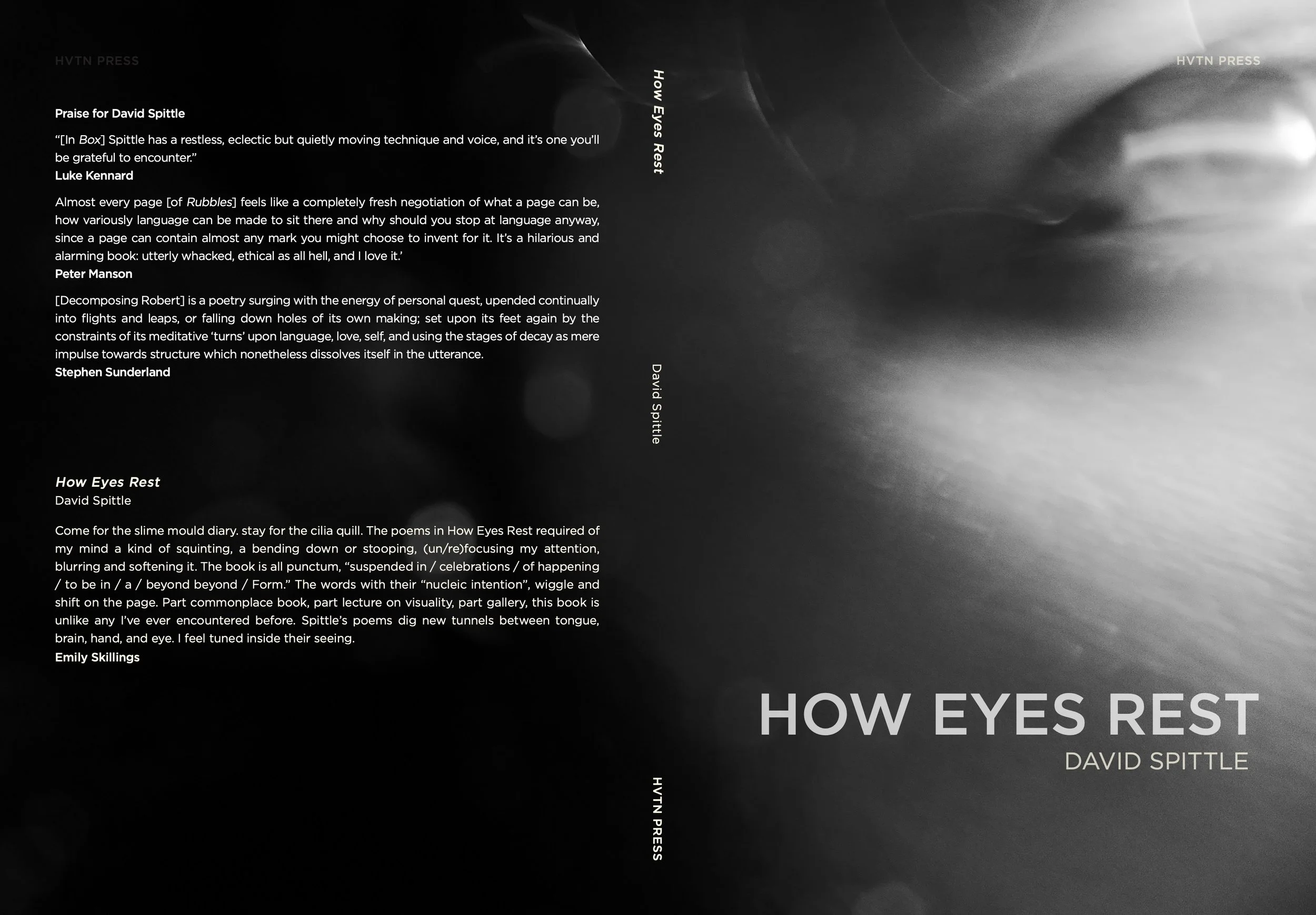How Eyes Rest
How Eyes Rest
Praise for David Spittle:
“[In Box] Spittle has a restless, eclectic but quietly moving technique and voice, and it’s one you’ll be grateful to encounter.”
Luke Kennard
Almost every page [of Rubbles] feels like a completely fresh negotiation of what a page can be, how variously language can be made to sit there and why should you stop at language anyway, since a page can contain almost any mark you might choose to invent for it. It’s a hilarious and alarming book: utterly whacked, ethical as all hell, and I love it.’
Peter Manson
[Decomposing Robert] is a poetry surging with the energy of personal quest, upended continually into flights and leaps, or falling down holes of its own making; set upon its feet again by the constraints of its meditative ‘turns’ upon language, love, self, and using the stages of decay as mere impulse towards structure which nonetheless dissolves itself in the utterance.
Stephen Sunderland
Praise for How Eyes Rest:
“Come for the slime mould diary. stay for the cilia quill. The poems in How Eyes Rest required of my mind a kind of squinting, a bending down or stooping, (un/re)focusing my attention, blurring and softening it. The book is all punctum, “suspended in / celebrations / of happening / to be in / a / beyond beyond / Form.” The words with their “nucleic intention”, wiggle and shift on the page. Part commonplace book, part lecture on visuality, part gallery, this book is unlike any I’ve ever encountered before. Spittle’s poems dig new tunnels between tongue, brain, hand, and eye. I feel tuned inside their seeing.”
Emily Skillings


